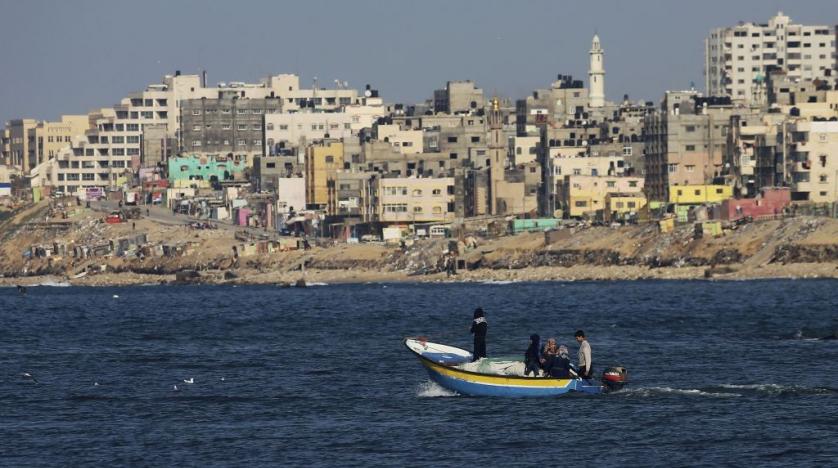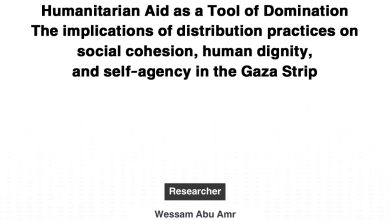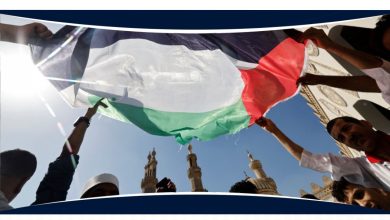The World Bank report to donors meeting in Brussels puts Gaza at the heart of the event.

By Omar Shaban – Gaza
The World Bank report, which came after the White House meeting last Tuesday on Gaza, was attended by representatives of dozens of Arab, Western and Israeli countries and boycotted by the Palestinian National Authority (PNA). This report is to be presented at the Ad Hoc Liaison Committee meeting of donor countries to the Palestinian Authority, which will be held in Brussels, Belgium, next Monday (March 19th). This committee meets twice a year to follow up donor funds to the Authority and to determine the nature of future interventions.
This meeting is particularly important because it comes after the meeting of the White House, which focused on the situation in the Gaza Strip and in light of the strained relationship between Washington and the Palestinian Authority following the decision of President Trump regarding Jerusalem and the cessation of contacts between them. In addition, the report carries a lot of new aspects that should receive attention and analysis, some of which point to the future:
- The report allocates 46 pages, more than half of it, to talk about the situation of the Gaza Strip during the past two decades in all areas, and this is not the case in previous reports.
- The report clearly criticizes the Israeli measures imposed on the Gaza Strip from the blockade and the prohibition of the entry of dual-use goods, the lack of electricity and restrictions on the free movement of goods and persons.
- The report confirms that the situation in the Gaza Strip cannot continue this way and calls on all parties involved to work together to prevent the disaster.
- The report recommends the implementation of dozens of immediate and medium-term interventions in the fields of electricity, sanitation, water, small enterprise support and export promotion, increasing the number of permits granted to traders, supporting private sector institutions and many others.
- The report presents a number of recommendations regarding the Gaza Strip, including:
1) Integrating government sector employees and improving the efficiency of public work
2) Improve tax collection
3) Unifying laws between the North and South governorates
4) Allocating budgets to support small projects
5) Facilitate exports from Gaza to the northern and Israeli governorates
6) Issuing permits for traders from Gaza to enter Israel
7) Expansion of marine fishing areas
8) Increase electricity to the Gaza Strip
9) Building and improving industrial areas
10) Private sector support.
- The report allocates 5 pages to the issue of merging PA employees and the former government of Gaza into the government sector. It can be seen that the integration of de facto government officials, according to the term of the report, is not rejected and the international community should assist in the absorption process.
- The report suggests that the process of absorbing the de facto government employees is not automatic, but must be based on the need in each sector and take into consideration the population growth and work to modify the imbalance between the Gaza Strip and the northern governorates in terms of the proportion of employees to the population in certain sectors Health and education, for example.
- The process of absorbing de facto government officials must be done through vetting according to international standards.Is the mechanism that was applied to the employees of the Government of Gaza in 2014 for disbursement of the financial grant.
- The report calls on the Palestinian Authority to implement the merger process and include it in the public budget and submit it to donors to discuss the possibility of financial support.
- The report calls for the implementation of training and rehabilitation programs for public sector employees in the Gaza Strip, such as those implemented in the northern governorates.
- The report called on the Palestinian Authority to work to reform the government apparatus and increase the efficiency and encouragement of the early retirement of its employees.
- The report demands that Israel regularize the transfer of clearance funds to the Palestinian Authority without delay.
- The report indicates a significant decline in economic activity in the northern governorates due to restrictions on the movement of people, goods, and investment.The GDP growth rate for the year 2017 fell to only 2.4% compared to a growth rate of 5% in previous years.
- The deterioration of the economic situation in the Gaza Strip due to the lack of liquidity, the decline in international support for reconstruction and the reduction of salaries of PNA employees and the inability of the former Gaza government to pay the salaries of its employees in full and regular.With a GDP growth rate of half a percent for 2017 compared with a growth rate of 8 percent in 2016. Support for reconstruction declined to $ 55 million in 2017, compared to $ 400 million in 2016.




